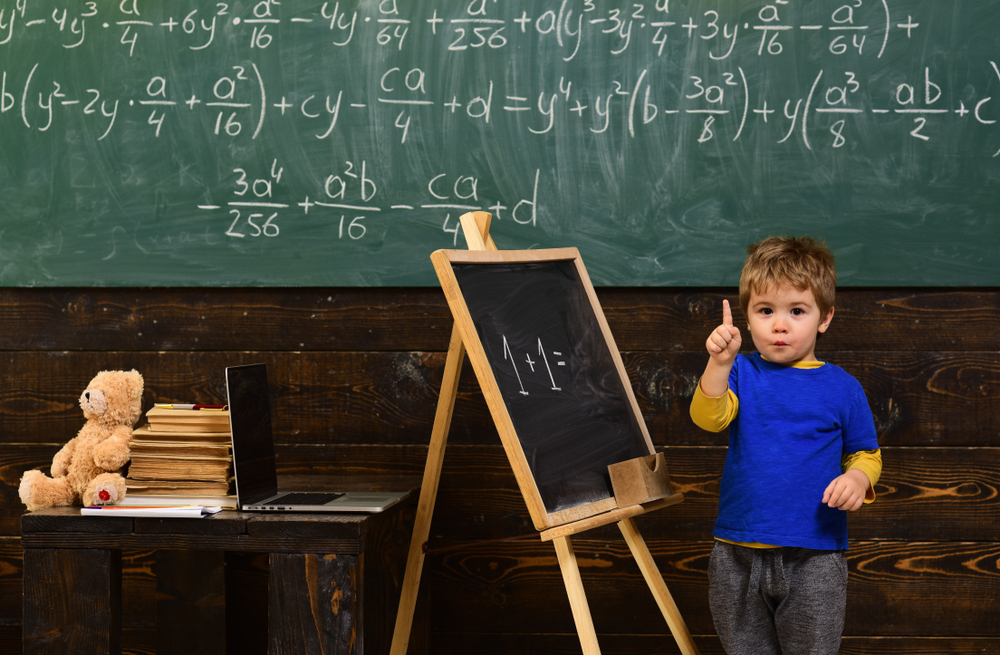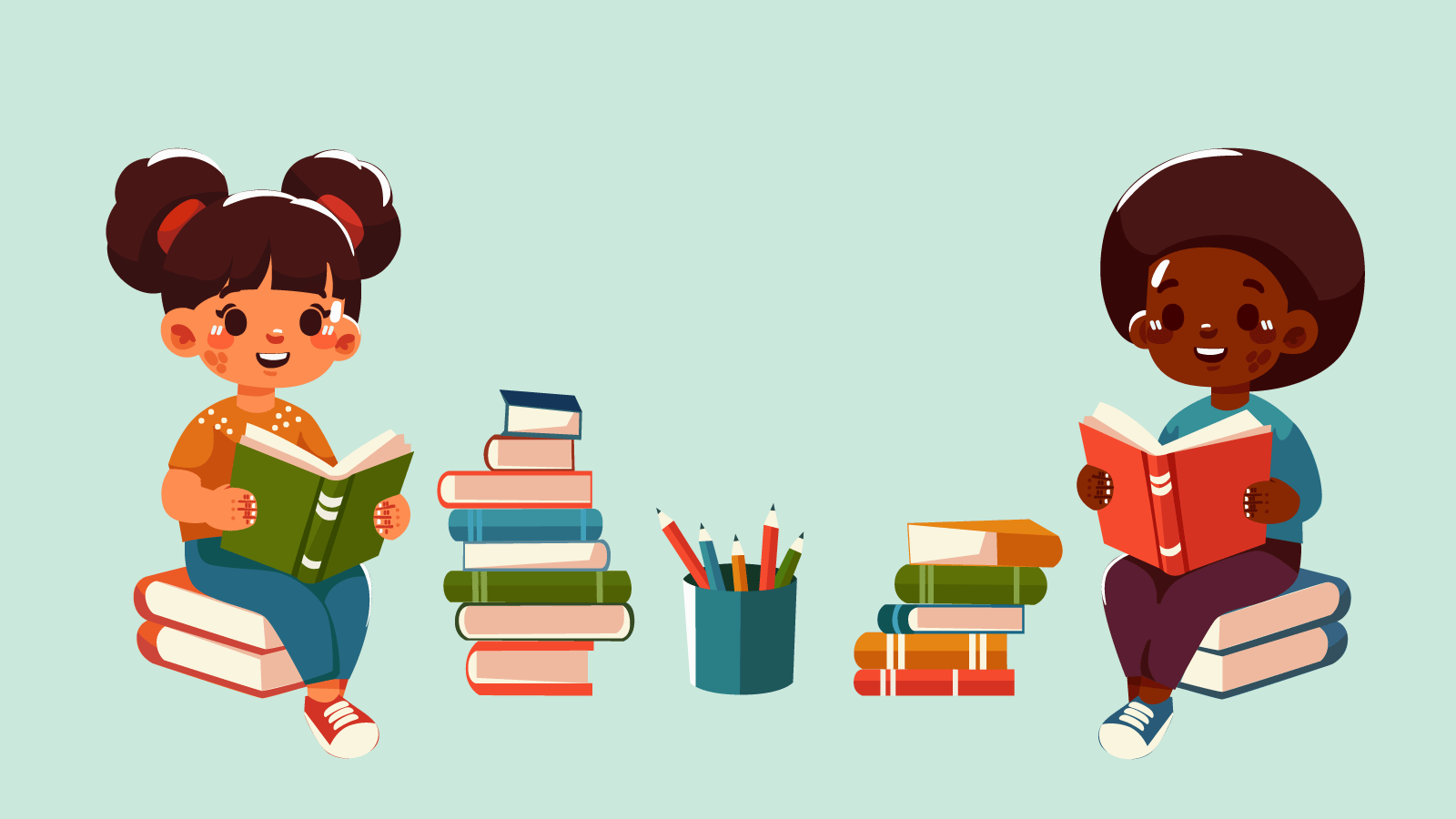Easy Matching worksheets activities for Ages 5-7
7 filtered results
-
From - To
Discover our fun and engaging Easy Matching Worksheets designed for children aged 5-7! These interactive activities promote essential logical thinking skills, helping young learners enhance their memory, concentration, and cognitive abilities. With colorful illustrations and age-appropriate themes, each worksheet provides an enjoyable way for kids to practice matching objects, words, and images. Ideal for homeschooling or supplementary learning, our worksheets make education entertaining while fostering important developmental milestones. Whether in the classroom or at home, these easy matching activities are perfect for keeping young minds challenged and excited about learning. Explore our diverse collection and watch your child's skills flourish!
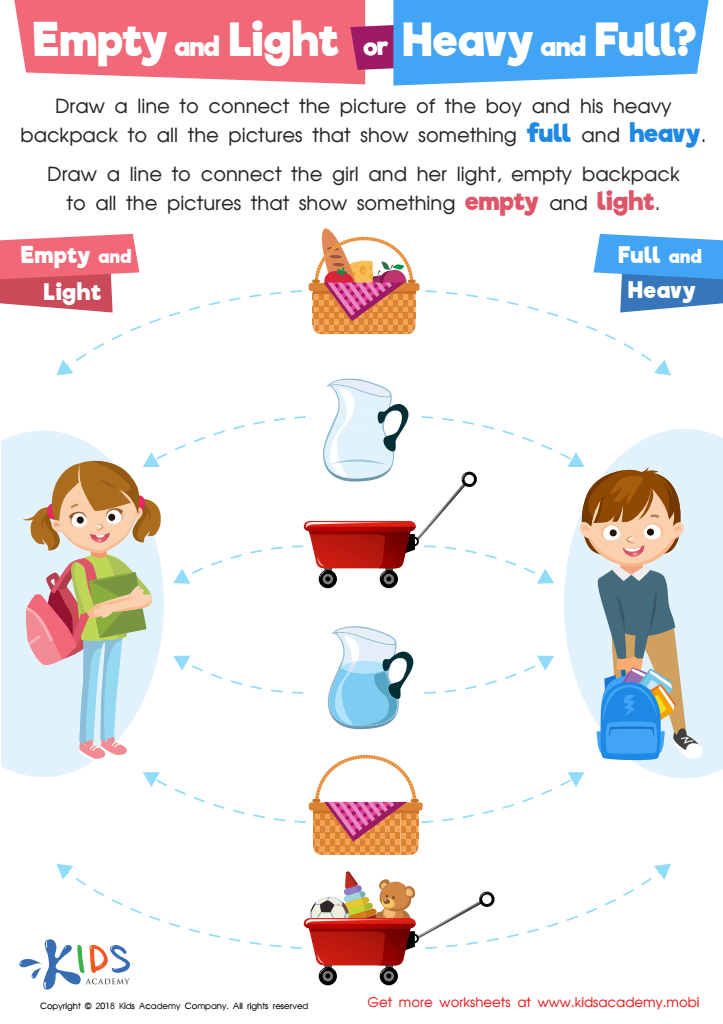

Empty and Light or Heavy and Full? Worksheet
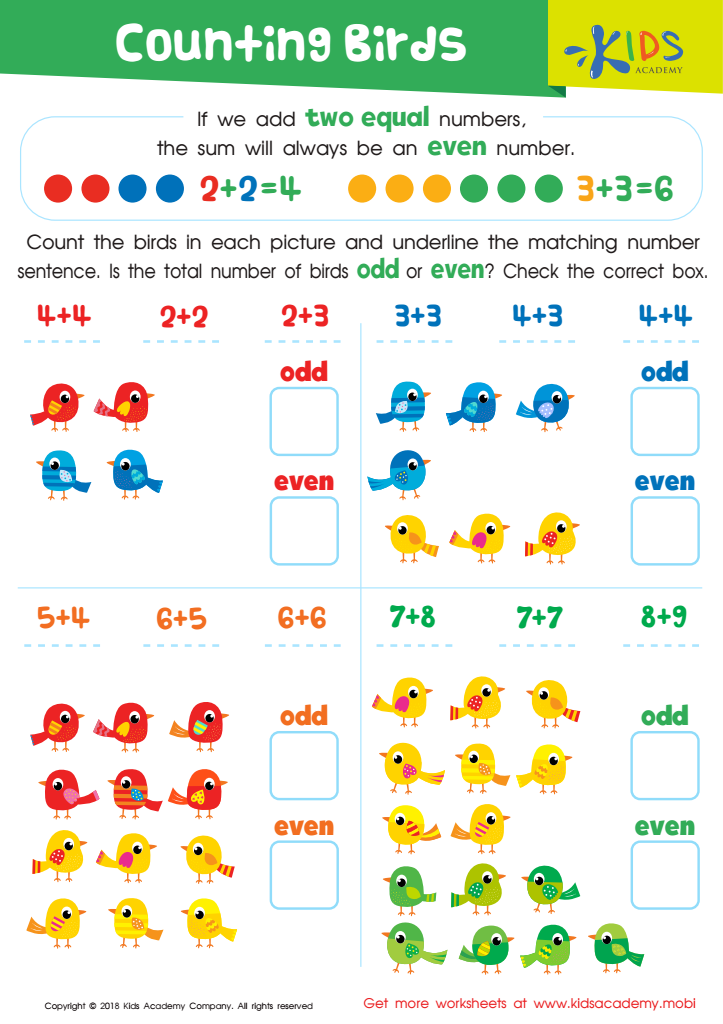

Counting Birds Worksheet
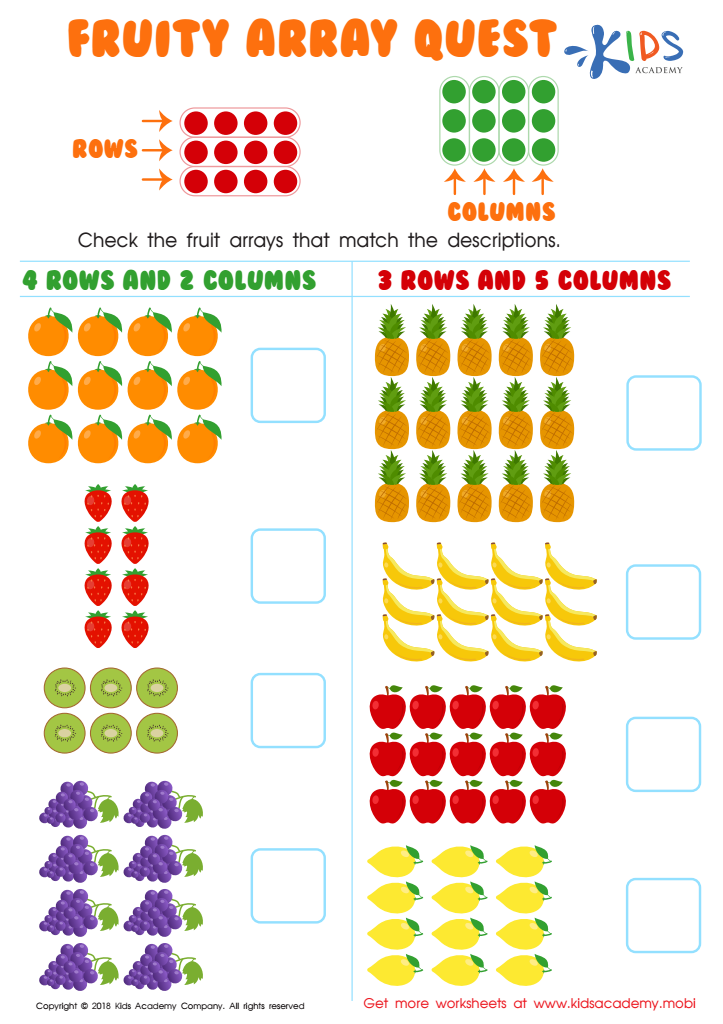

Fruity Array Quest Worksheet


Colorful Arrays Bingo Worksheet
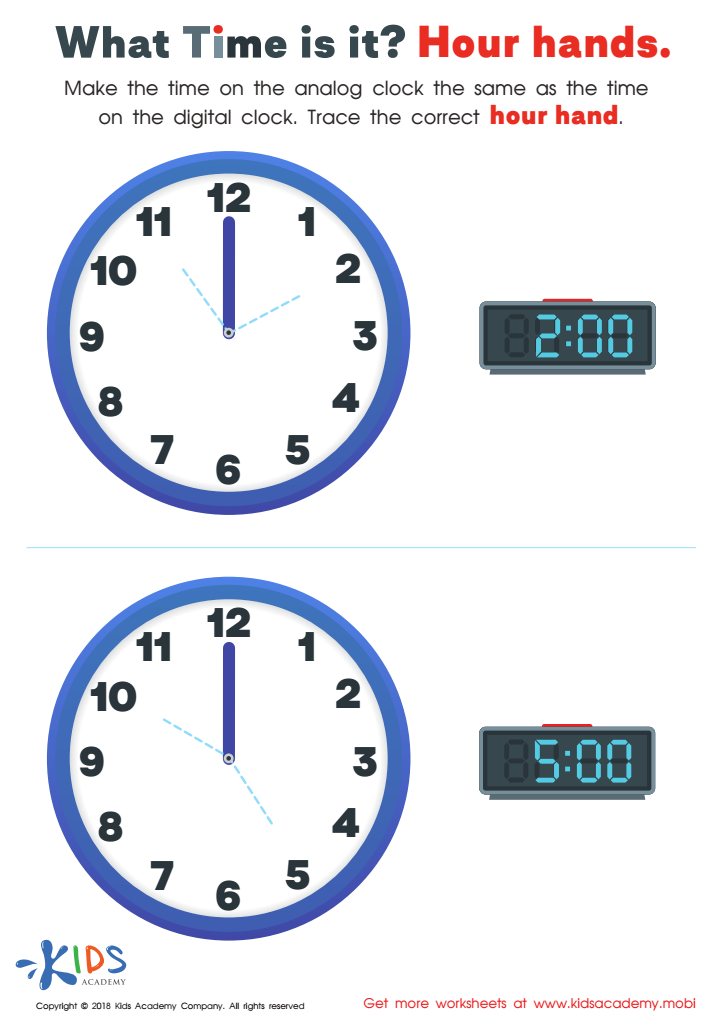

What Time Is it? Hour Hands Worksheet
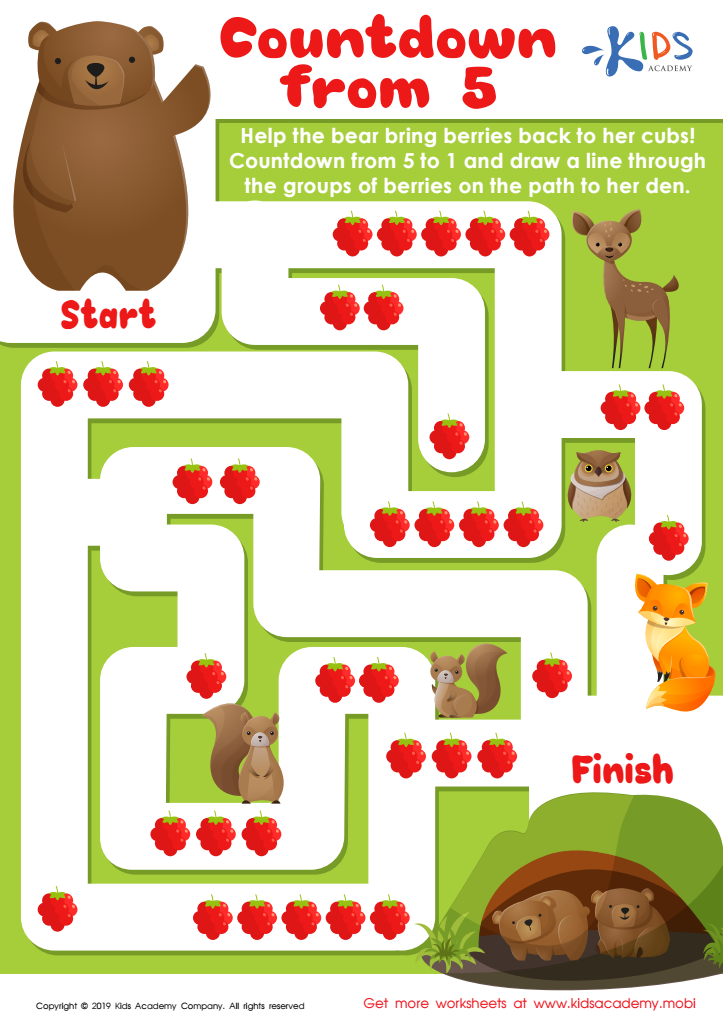

Countdown from 5 Worksheet
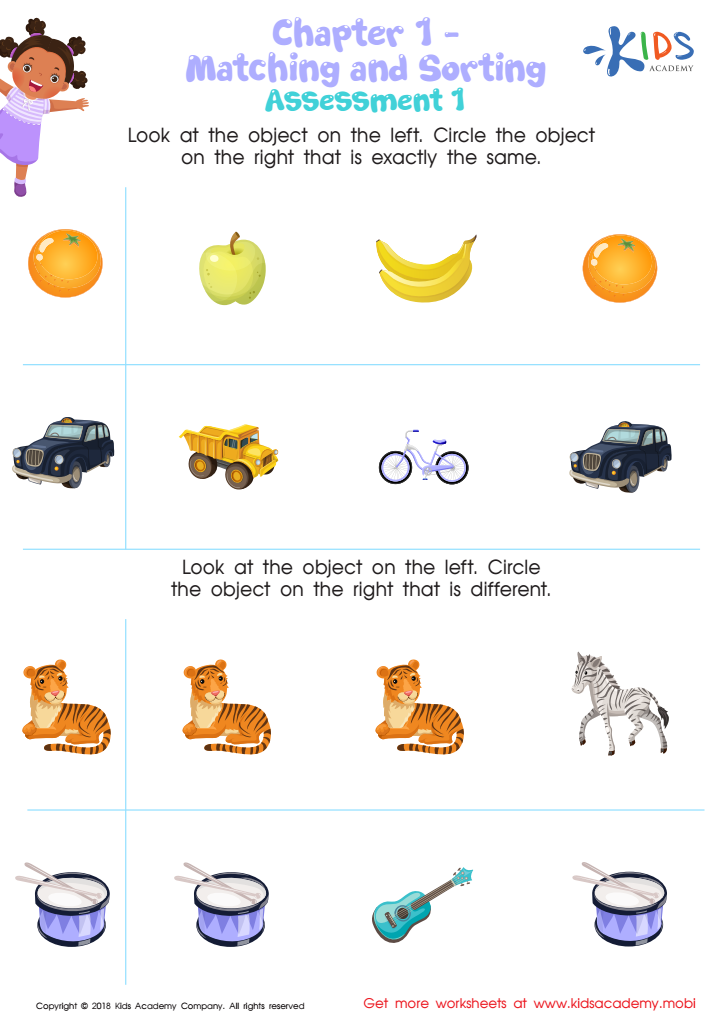

Matching and Sorting for Preschool: Assessment 1 Worksheet
Easy Matching activities are essential for children aged 5-7 as they lay the foundation for critical cognitive skills. These activities encourage children's ability to recognize patterns, develop memory, and enhance problem-solving abilities. At this early stage, engaging in matching games can significantly amplify their cognitive development by fostering attention to detail and encouraging focused observation.
Parents and teachers should prioritize these activities because they also promote essential social skills, such as taking turns and working collaboratively. As children match cards or items, they're learning valuable lessons about patience, sportsmanship, and communication. Additionally, matching tasks can be easily adapted to various subjects, such as math (numbers and shapes) or literacy (letters and words), making them versatile teaching tools.
Moreover, matching activities are effective for supporting the development of fine motor skills and hand-eye coordination, essential components of a child’s overall growth. They can be enjoyable, incorporating elements of play that captivate young learners' attention, thus making the learning process more engaging. In essence, Easy Matching activities effectively build key foundational skills, making them an indispensable part of childhood education.
 Assign to My Students
Assign to My Students



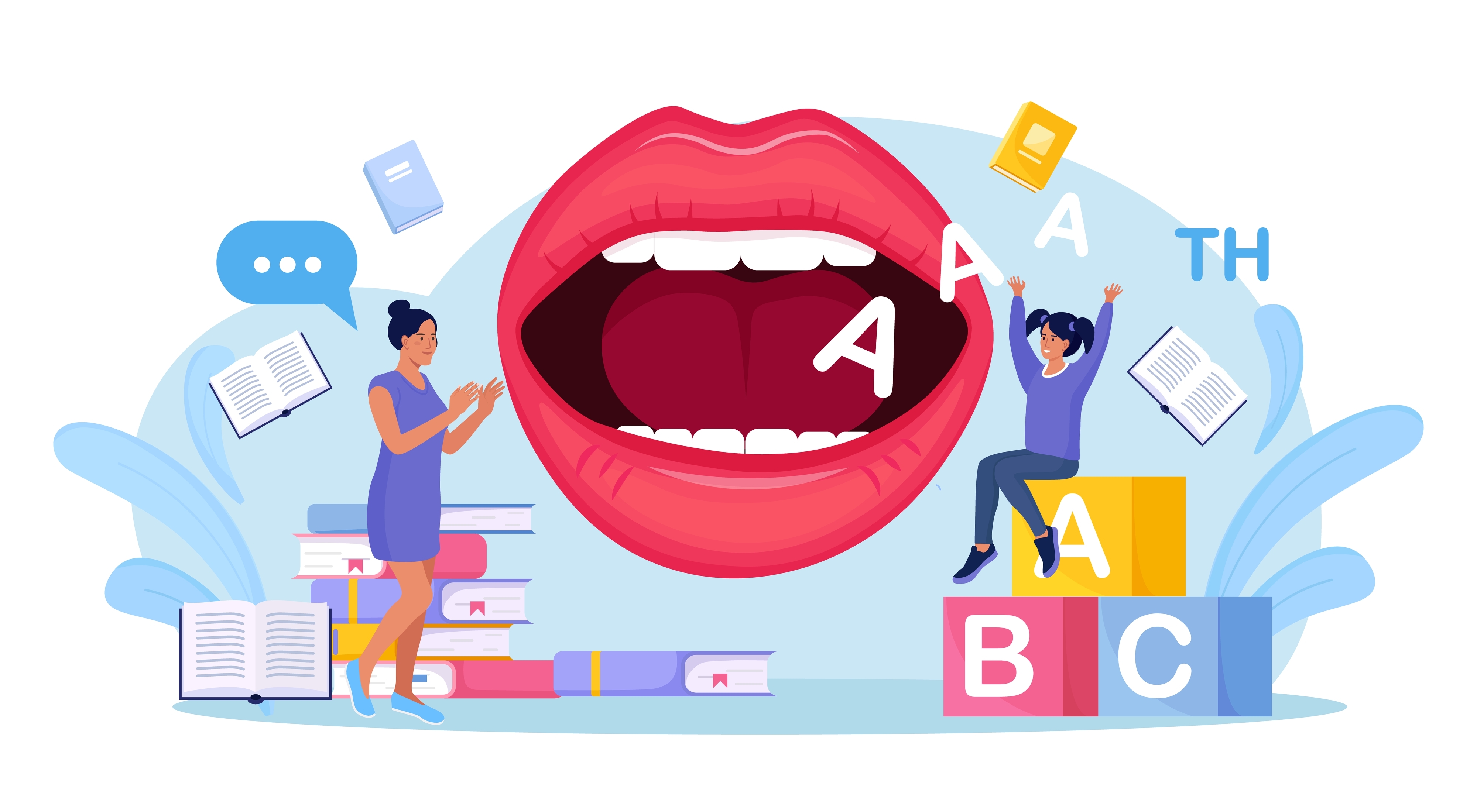
.jpg)

